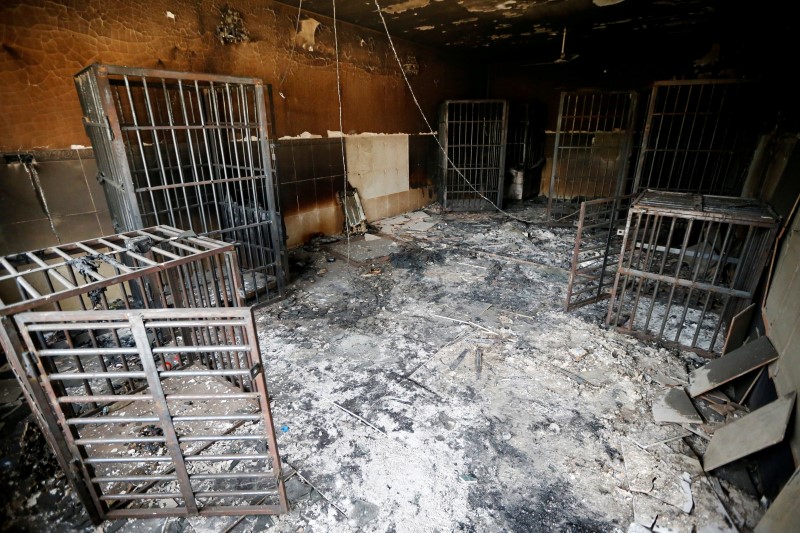BAGHDAD (Reuters) - The United Nations said Iraqi authorities will allow civilians displaced by the assault on Islamic State-held Falluja to start returning home as early as August.
More than 85,000 people fled their homes during a month-long campaign that ended on Sunday when Iraqi authorities declared they had completely recaptured the city, an hour's drive west of Baghdad.
A report on Thursday from the U.N. refugee agency UNHCR, noting the government's plans, said the level of destruction will make their return difficult in the short term and explosives would pose a hazard to residents.
The civilians at government-run camps, who make up about a third of Falluja's total population before Islamic State took over 2-1/2 years ago, are currently relying on handouts from the United Nations and aid groups.
Lack of funding means many do not have adequate shelter, food or water amid temperatures exceeding 50 degrees Celsius (122 Fahrenheit). Humanitarian agencies fear poor sanitation could spread infectious diseases like cholera and skin diseases in addition to exacerbating chronic illnesses.
The head of Iraq's Sunni endowment, a public institution that manages religious sites, delivered the first Friday sermon since the city's recapture at a mosque inside Falluja. A few dozen worshippers, including senior military commanders and tribal sheikhs, were gathered there.
"I can see from liberated Falluja the gates of Nineveh open to you Iraqis, you fighters; enter them with your rifles as liberators," Abdul Latif al-Humaim said in a live television broadcast.

Mosul, the capital of Nineveh province in the north and the largest city still controlled by Islamic State, is the top target in the government's campaign against the militants who seized a third of Iraqi territory two years ago.